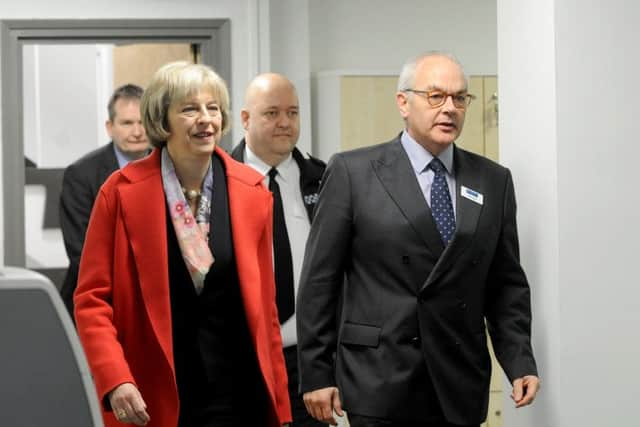Cyber crime volunteer police turn to social media in murder bid case


Experts from the world of computing were recruited to become special constables in a bid to tackle cyber crime.
Seven months into the pilot – launched with prime minister Theresa May, then home secretary – the scheme has attracted six volunteers.
Advertisement
Hide AdAdvertisement
Hide AdFive special constables are working in the pilot, with one volunteer in post – a further 12 are being security vetted.


Special Constabulary chief officer Tom Hayes said: ‘The pilot is already proving useful with our forensic specials working on all sort of investigations, from a ‘cold case file’ to working to gather useful intelligence.
‘It is a pilot and we’ll be seeing how it develops but so far it’s already proved beneficial.’
Mr Hayes launched the scheme in January when Mrs May visited the police’s Forensic Innovation Centre, based at the University of Portsmouth.
Advertisement
Hide AdAdvertisement
Hide AdThe scheme wants to attract specialists to help crack cases that require skills not available in the force.


Specials are volunteers who give up their time and are either constables with arrest powers or civilians.
About 43 people applied for the posts in the unit and 43 hours of specials’ time has been poured into the project.
The figures, obtained by The News under a Freedom of Information request, show just the murder bid has been investigated so far.
Advertisement
Hide AdAdvertisement
Hide AdThe volunteers have been scouring social media in a bid to solve the case.
Those involved in the project have skills in anti-virus technologies, coding languages, infrastructure and software operating environments, networking, encryption and malware analysis.
Michael Lane, Hampshire’s police and crime commissioner, said he welcomed the pilot. He said: ‘The journey ahead of the constabulary, the specials and the volunteers is one of learning, which will support the investigation of digital crime and I look forward to the result: keeping people safer online.’
It comes as the head of Hampshire police’s investigation command makes a separate warning over cyber safety.
Advertisement
Hide AdAdvertisement
Hide AdGCHQ is recommending people update their software under the #quickupdates campaign.
Det Supt Ben Snuggs said: ‘Software updates may take a few minutes, but the added security could save you from becoming a victim of cybercrime.’
About 68 per cent of people in the south east do not update mobile phone software and 64 per cent do not update their computer. The government is spending £1.9bn on cyber security under the National Cyber Security Programme.